
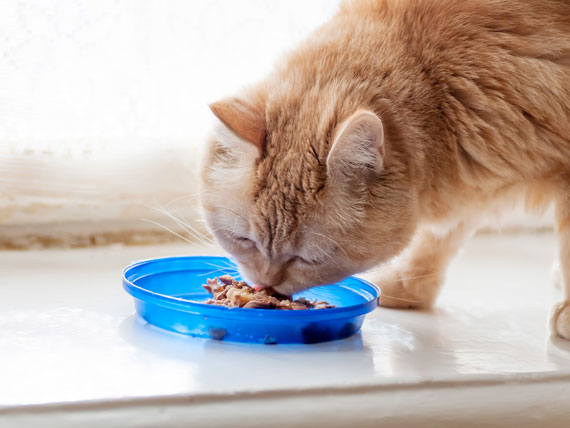
By Jennifer Coates, DVM
Cats are living longer – a full year longer when compared to 2002*. That is certainly something to celebrate, but it also highlights the need for increased awareness of health issues in senior cats. Conditions such as kidney disease are becoming more prominent. And while the importance of early treatment and diet in the management of chronic kidney disease (CKD) in cats is well established, the fact that a cat’s nutritional needs change as the disease progresses is often overlooked.
Phosphorous restriction is vital for cats with chronic kidney disease. The reason for this is simple. Phosphorous is excreted from the body through urine, and when kidney function is impaired, phosphorous levels within the body begin to rise. The easiest way to keep blood phosphorous down is to restrict the amount that a cat takes in.
Early in the course of the disease, dietary phosphorous levels may only need to be moderately restricted. More advanced cases often require more dramatically lowered amounts, or even the addition of a medication that binds to phosphorous within the intestinal tract, thereby limiting its absorption.
Recommending an appropriate dietary protein level for cats with CKD is a little more complex. Too much protein in the diet can be deleterious, in part because foods that are high in protein also tend to be high in phosphorous. Foods for cats with CKD should always be of the highest quality protein possible so the patient gets the most value from that protein with the least negative effect on his or her kidneys.
A food’s energy level (caloric content) should also match the cat’s current needs. If a cat is losing weight on a kidney diet, it doesn’t matter how good the lab work looks, the food is not meeting the patient’s nutritional needs. Sometimes the solution may be as simple as trying another brand or flavor of kidney diet.
Most veterinarians recommend canned diets for cats with CKD because canned food contains more water than kibble, and dehydration is a big problem for cats with CKD. However, because of their high water content, canned diets are also less calorically dense than are dry formulations. If a CKD patient is having trouble maintaining his or her weight on a canned diet, switching to dry can be a reasonable option as long as two conditions are met:
1. The cat takes in more calories after the diet switch.
2. The owner is willing to increase (or start) subcutaneous fluid administration to compensate for the loss of water intake from food.
Nutritional assessment should be part of every recheck for a cat with chronic kidney disease. If your veterinarian doesn’t bring the topic up, ask if your cat’s physical exam and lab work suggests that a change in diet might be in his or her best interests.
* Banfield Pet Hospital State of Pet Health 2013 Report
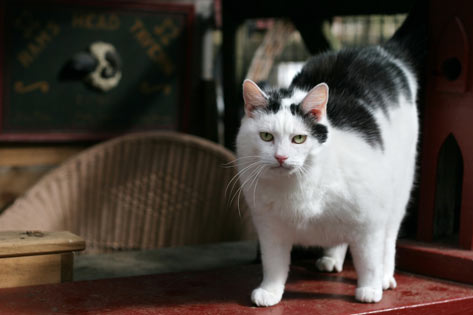 Why Your Cat's Weight Really Matters
Weight Isn’t Just a Cosmeti
Why Your Cat's Weight Really Matters
Weight Isn’t Just a Cosmeti
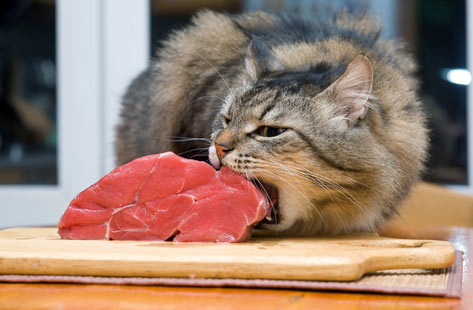 Origin of Raw Food Diet for Pets
History of Raw Pet Food
By Patrick Maha
Origin of Raw Food Diet for Pets
History of Raw Pet Food
By Patrick Maha
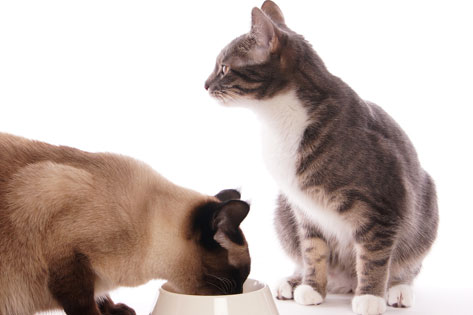 Importance of Antioxidants in Pet Food
By Jennifer Coates, DVM
Antioxi
Importance of Antioxidants in Pet Food
By Jennifer Coates, DVM
Antioxi
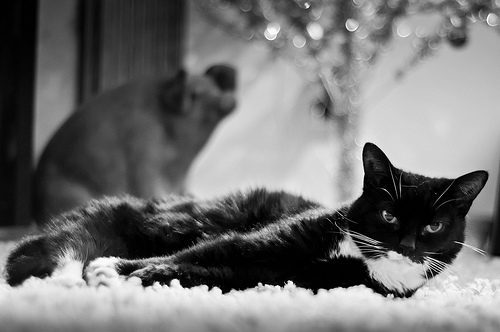 Holistic Medicine and How it Can Help Your Pet
By Yahaira Cespedes
Keeping Your Pet He
Holistic Medicine and How it Can Help Your Pet
By Yahaira Cespedes
Keeping Your Pet He
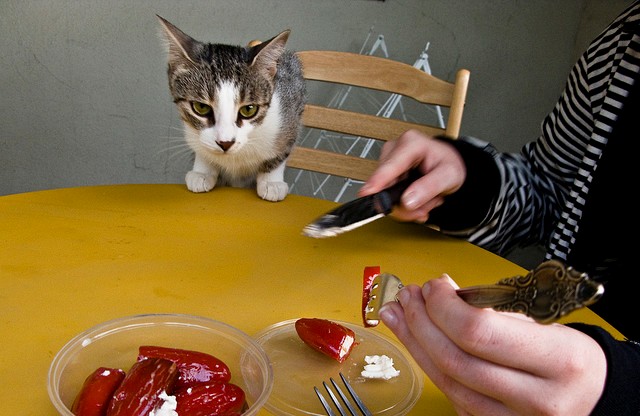 Choosing the Best Feeding Method for Your Cat
Nurturing a cat is not always as easy at i
Choosing the Best Feeding Method for Your Cat
Nurturing a cat is not always as easy at i
Copyright © 2005-2016 Pet Information All Rights Reserved
Contact us: www162date@outlook.com